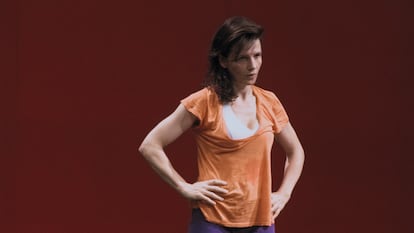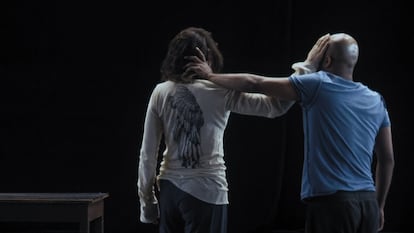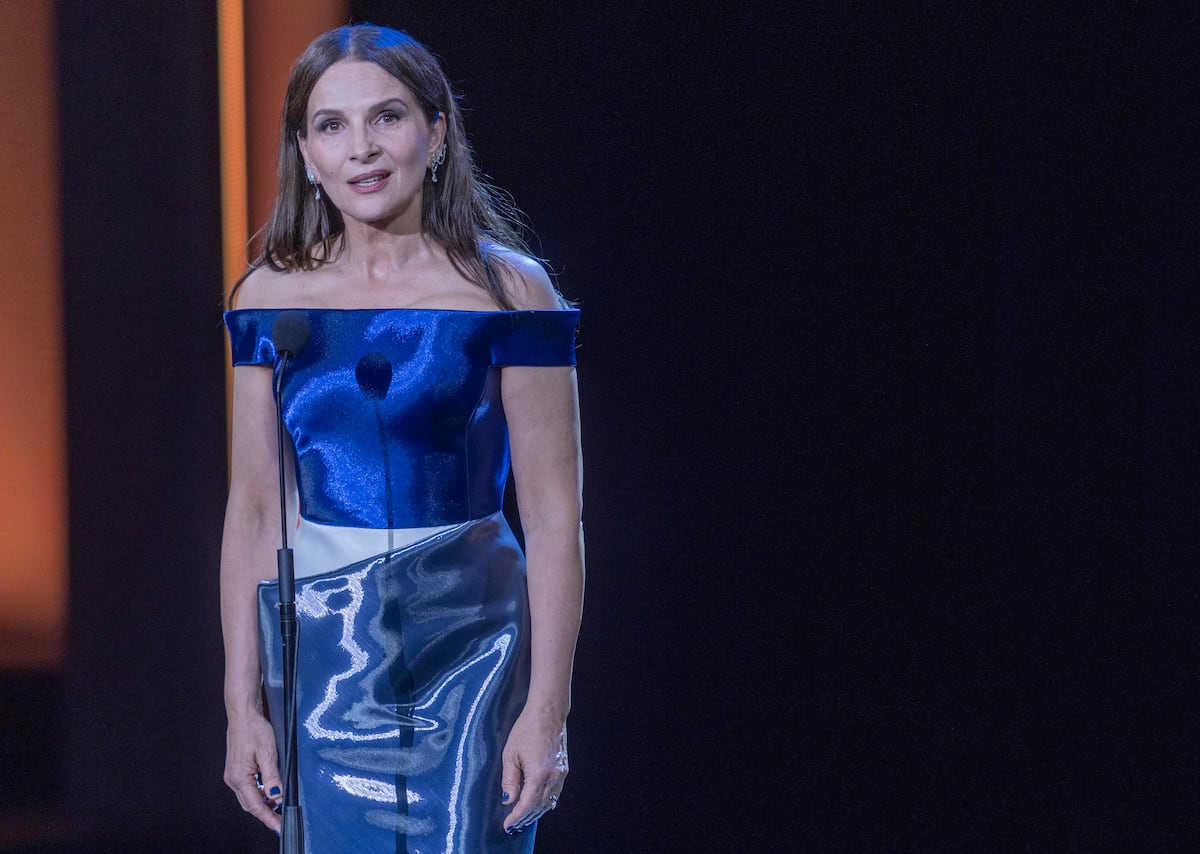In the fall of 2008, Juliette Binoche put her foot down and decided, in a radical change, to dance. But not just in any old way. She would do it alongside the prestigious British dancer and choreographer Akram Khan. And not even with an existing piece, but together, over nearly six months of rehearsals, they would research, create, and assemble a work that would combine the best of both worlds, capitalizing on their apparent weaknesses and contradictions. Binoche ended up dancing and Khan acting, and in the work In-I, the fears of a man who had suffered racism and discrimination due to his skin color and his Muslim faith would merge with those of a woman harassed in a world — that of cinema — with a tyrannical stance over bodies and hierarchies. The following year they staged it for 100 performances — with sets by Anish Kapoor and music by Philip Sheppard — all over the world, with no further ambition, until Robert Redford came along.
The video call with a smiling Binoche, 61, takes place mid-morning on September 16 in Paris. As such, the anecdote the actress tells about why she directed In-I in Motion — jokingly blaming Redford — takes on another dimension when, three hours later, the Hollywood legend’s death is announced. The interview comes about because that stage journey has been captured in In-I In Motion, which premiered last Saturday at the San Sebastián Film Festival, marking Binoche’s directorial debut. The feature film first shows the stormy, demanding, and incisive rehearsal period, and then the full result.
Redford saw the production in New York. “We had filmed the rehearsals as working material. After that performance, Redford insisted, practically ordered me, that I had to film the show. I’d already been mulling over the possibility, and who’s going to say no to Redford? But I didn’t know how; I was dealing with motherhood at the time… Still, we had a month left on tour, and on returning to Paris, I asked my sister to film the last seven performances. And I kept those tapes in a drawer. For 15 years. Until two years ago, [when] a Norwegian producer asked me if I had any projects, and I remembered those recordings. In reality, they languished there for decades, both due to lack of money and time,” the actress explains.

Binoche, she says, has not censored the bad moments. “I even stopped rehearsing,” she says. Laid bare, the screen reveals the magic tricks hidden in the acting (she teaches Khan to measure his speech) and the dancing (he forces the Frenchwoman’s body, while assuring her that he likes the movements to be imperfect). “That way we were able to show… our immensity through our limitations and perceptions. At least I felt that we were rising above ourselves. I understand why some artists move on to explore other disciplines because you enjoy the process of starting from scratch.”
What does this Binoche remember about that Binoche? “Ugh, I see myself now and remember things I’d forgotten. I’m proud of the project,“ she says. ”But every night I thought I was going to die, either because I couldn’t breathe or because I was going to break. That’s why in the film I fought to improve the sound, so that the audience could hear me gasping for air. It was very physically demanding, and let’s not forget, emotionally demanding too. I’d never experienced anything like it before and I’ve never experienced it again. As an actor, you tend to hold back your emotions, to dive deep inside yourself, and here you have to bring it out in the dance steps. They are more sensory resources, if you can say that. I’ve always liked creative risk, and here I forced my body to change so that I could express what I was feeling.”
If In-I was structured through the lives of the two protagonists, In-I In Motion reflects them, speaking about those experiences in a very raw way, before fictionalizing them or at least conveying them through the movements on stage: “That’s right. He was attacked in a mosque. He remembers it with [a feeling of] pain. And I fell in love with a boy when I was 14, whom I barely knew, and I wanted to live with him. And I was mugged and strangled. From the beginning, we decided to use those experiences as the narrative engine. We went all-out emotionally.“ And that’s why the journey was so draining. ”When we finished, Akram and I took a break from each other [laughs]. We’ve kept in touch, although with this premiere, I think I’m building a bridge for us to become close again.”
Will Binoche return as a director? “It’s complicated because you need time,” she sighs. But does she have any ideas? “Well, quite a few. There are so many stories I want to tell. I should stop and write them down, because they’ve been in my head for so long… Now I even have my own production company. Although the problem is that you’d have to find financing, and that requires a lot of money and effort. It’s a work of faith. You put your heart on the table, and all you have to do is hope someone embraces it, if you’ll pardon that metaphor.”

The French artist attended the San Sebastián Film Festival, which like Spain is dedicated to supporting the Palestinian people. What should an artist’s position be in the face of events like those in Gaza? “I’m familiar with the festival’s statement, signed by José Luis Rebordinos, and I endorse it. Our position is always complicated. I think it’s important to express the complexity of feelings. And of course, when I see the brutality depicted in the images, I feel pain. We must support the Palestinian people, just as we cannot forget the more than a thousand people murdered by Hamas and the hostages still in its hands.”
Sign up for our weekly newsletter to get more English-language news coverage from EL PAÍS USA Edition
